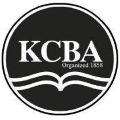Yorkville Estate Planning Lawyers

Protecting Your Assets and Loved Ones
Estate planning is an important process for anyone who is looking to protect their assets and provide for their loved ones after they are gone. People of any age will want to make sure their final affairs will be handled correctly, and in addition to making decisions about distributing their assets to their loved ones or other beneficiaries, they can also take steps to address how medical care and other issues will be handled as they get closer to the end of their lives. An experienced attorney can play a vital role in helping create the documents that make up an estate plan.
At Gateville Law Firm, we understand the complex legal and financial issues involved in estate planning, as well as the emotional concerns that family members may need to address as they prepare for the future. We take the time to get to know our clients and explain their options, and we craft customized estate plans to ensure that their wishes will be carried out according to their desires. With our guidance and assistance, families can rest assured knowing that all of their hard-earned assets will be protected and distributed correctly.
Creating a Comprehensive Estate Plan
There are several different tools and legal documents that can be used to craft an effective estate plan, including:
- Wills - A last will and testament is a legal document that outlines how a person's assets and property will be distributed after their death. It can also address issues such as who will care for any minor children and who will be responsible for administering the estate after the person's death. This is a foundational component of any estate plan. Without a will, a person's assets will be distributed to their relatives according to state laws, and this can often result in unintended consequences or disputes among family members.
- Trusts - These instruments allow a person's assets to be held and managed by another party and distributed to beneficiaries at certain times and used for specific purposes. There are several different types of trusts that can be incorporated into an estate plan. Revocable living trusts can be used to manage a person's assets during their lifetime and transfer those assets to beneficiaries either before or after their death. Irrevocable trusts can be used for tax planning, asset protection, and charitable giving. Special needs trusts can be used to provide for the care of a disabled or incapacitated loved one without risking their eligibility for government benefits. We can provide guidance on when joint trusts or individual trusts may be beneficial for you and your family.
- Asset protection and wealth preservation - If you own significant assets, or if you are looking to make sure your wealth can be passed on to future generations and used according to your wishes, our team can help you determine your best options for protecting against losses, minimizing taxes, and ensuring that you and your loved ones will be provided for.
- Special needs estate planning - If you have loved ones with disabilities, mental health issues, or other related concerns, you may want to determine how you can provide them with financial assistance and ensure that their needs will be met. Our team can provide guidance on the best methods of gifting assets or paying for expenses while ensuring that they will still qualify for public assistance.
- Blended family estate planning - If you have gotten married for a second time, or if you have children from previous relationships, you will want to ensure that your biological children, stepchildren, or other loved ones will be provided for, no matter what may happen in the future. We can help you address concerns related to estate planning in these situations, ensuring that your family will be prepared for the future.
- Estate planning for real estate investors - If you are a business owner, a real estate developer, or an owner of commercial property, you may need to address complex concerns about ownership of real estate property when creating or updating your estate plan. We can help you determine the ideal methods of protecting your assets, preserving your wealth, and transferring ownership of property either before or after your death.
- Powers of attorney - Another important component of an estate plan involves incapacity planning, or making decisions about how a person's medical and financial needs will be met if they become ill and cannot handle these matters on their own. This may be done through powers of attorney, which will name one or more people who will have the authority to make certain types of decisions on the person's behalf in certain situations. A power of attorney for property appoints someone to handle financial matters on behalf of the individual in the event of their incapacity, while a medical power of attorney designates an individual to make decisions about medical treatment and personal care when a person is unable to do so themselves.
- Advance medical directives - Incapacity planning may also address the end-of-life care a person will receive if they are diagnosed with a terminal illness. Documents such as a living will or do-not-resuscitate order may be used to specify what types of treatment should be provided or withheld in the event that a person experiences a condition that will result in their death and cannot make their wishes known.
- Legacy planning - For some people, an important issue to address during the estate planning process will involve ensuring that their values are passed down to future generations. Legacy planning can include components such as charitable giving, business succession planning, and preserving family history and traditions. Our attorneys can assist with legacy planning by helping to create trusts and other vehicles for charitable donations, advising families about the tax implications of their decisions, and providing guidance on how to protect assets and preserve wealth.
Contact Our Yorkville Estate Planning Attorneys
Creating an effective estate plan can be a complex process, but it can be crucial for protecting the interests of family members and ensuring that a person's wishes will be followed. At Gateville Law Firm, we can help families take the right steps to ensure that assets will be protected and distributed correctly, while also addressing issues related to medical treatment and end-of-life care. Our goal is to help our clients craft comprehensive estate plans that will protect their wealth and provide for future generations. Contact us today at 630-780-1034 to set up a free consultation and learn more about how we can help you create or update your estate plan.
Questions?
Contact Us Today
Call 630-780-1034 or fill out the form below to set up a free consultation today:
The use of the Internet or this form for communication with the firm or any individual member of the firm does not establish an attorney-client relationship. Confidential or time-sensitive information should not be sent through this form.
I have read and understand the Disclaimer and Privacy Policy.

















